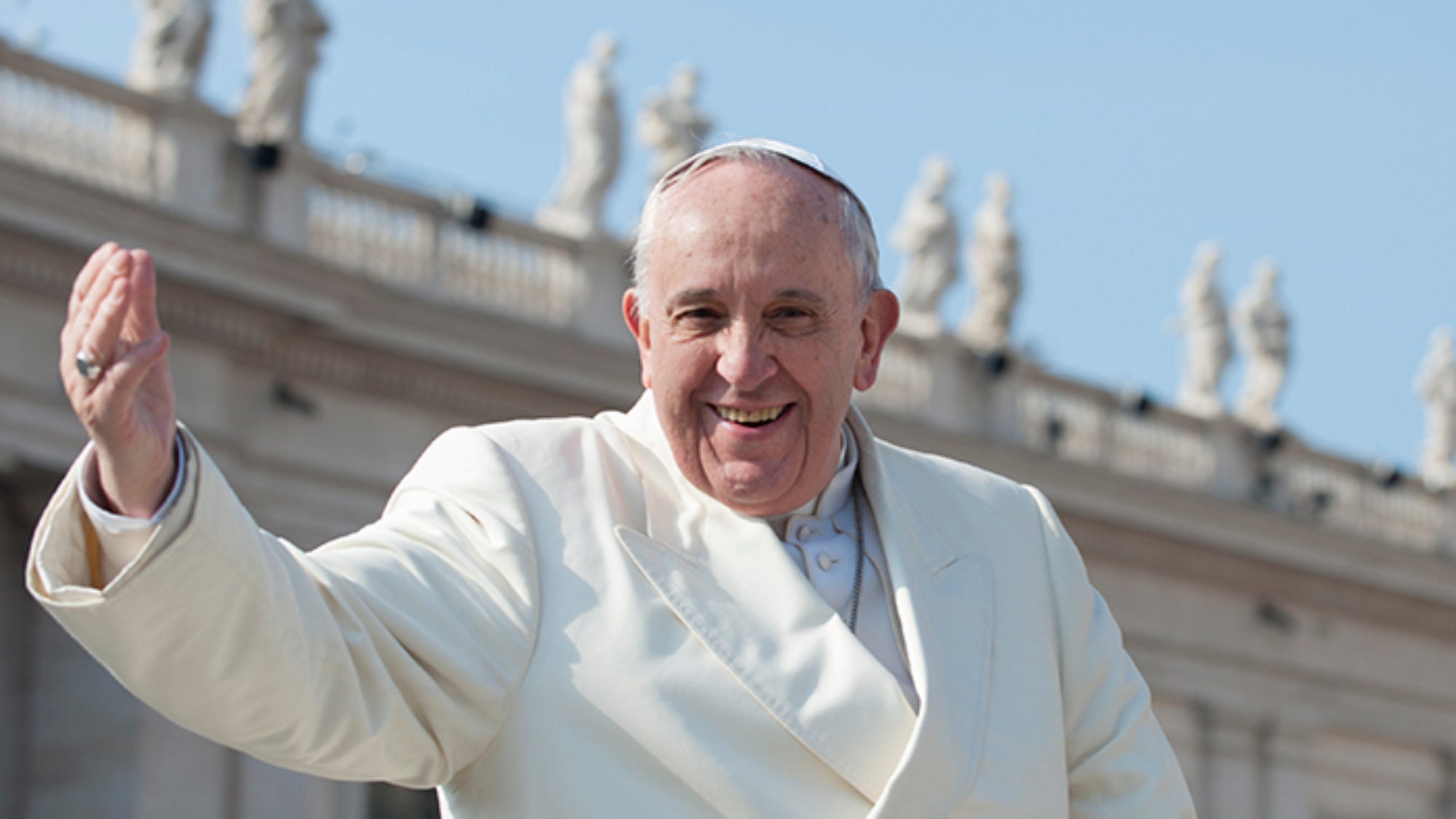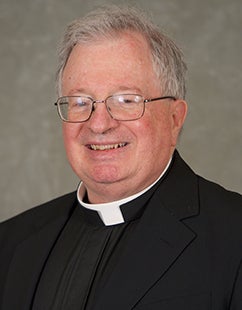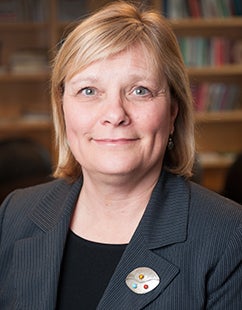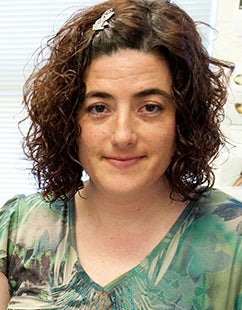
Title: Georgetown Scholars Anticipate Pope’s Environmental Encyclical
Georgetown scholars in theology, science, health and medicine weigh in as Pope Francis prepares to release his encyclical, Laudato Si’ (Praised Be), that addresses climate change.
Pope Francis will release his upcoming encyclical on climate change, Laudato Si’ or “Praised Be.”
As the world awaits a major document on the environment and climate change from Pope Francis, Georgetown scholars continue to research the relationship between the natural world and the humans who inhabit it.
Scholars in theology, law, policy, business, science, medicine and other fields have long advocated for some of the lifestyle and other changes the pope is expected to suggest in his upcoming encyclical Laudato Si’(Praised Be).
“An encyclical is a letter on a pressing social question by a pope to bishops of the world, and, since 1962, also to men and women of good will being people of conscience everywhere,” says Drew Christiansen, S.J., distinguished professor of ethics and global development at Georgetown’s School of Foreign Service.

Drew Christiansen, S.J.
Gifts of Creation
The encyclical from the global leader both Catholics and non-Catholics have come to admire has yet to be released.
“It’s not just about climate change, it’s about the environment,” Christiansen notes. “It is on that, there’s no denying that, but it’s also about taking responsibility for the environment in a wider sense, particularly for the environment’s impact on the poor.”
The name of the encyclical references St. Francis of Assisi’s prayer thanking God for the gifts of creation.
Human Impact
The pope’s message is expected to acknowledge that humans are responsible for global warming.
Laura Anderko, the Robert and Kathleen Scanlon Chair in Values Based Health Care at the School of Nursing & Health Studies, says she agrees with pope on the connection between human behavior and climate change.
“The scientific literature strongly supports this statement,” says Anderko, a 2013 White House Champion of Change for her leadership in raising awareness about climate-related health effects whose life’s work focuses on the intersection of environmental and social justice. “Someone finally is not afraid to speak the truth.”
“Faith communities have been actively involved in looking at climate change and in particular, health issues,” she adds. “I think that the pope’s message will help bring in those folks who may not have considered the importance of climate and health and what it means for the natural world.”
Faith That Does Justice
The encyclical is also expected to focus on the disproportionate effect of environmental problems on the poor.
A former director of the United States Conference of Catholic Bishops’ Office of International Justice and Peace, Christiansen says environmental problems such as rising water, mining, toxic pollution and other problems affect disadvantaged areas the most.
“For Jesuits, this is part our mission for promoting faith that does justice,” he says. “We also have responsibility towards the poor and the disenfranchised in this world. They are most affected by environmental change.”
Children’s Health

Laura Anderko
Protecting the rights of children is a high priority for Anderko, now director of the Centers for Disease and Control and Prevention-funded Mid-Atlantic Center for Children’s Health and the Environment.
The center consults with health professionals and families about children’s exposure to environmental hazards and how they impact health in Washington, D.C., Maryland, Virginia, Pennsylvania, Delaware.
Her own research looks at air quality and asthma in the District.
“Kids are not little adults,” Anderko observes the day before the heat index in Washington soared to 103. “They are actively growing and developing through the age of 18. So any source of environmental assault or exposure will impact them. And as far as climate change goes, they are less likely to be able to moderate their body core temperatures.”
Day-to-Day Challenges
She notes that children who live in disadvantaged areas often have no access to air conditioning, and go from an overheated home to an overheated school and back again.
“The kinds of things that most of us take for granted are really day-to-day challenges for those who are poor and living in communities that are under-resourced,” Anderko explains.
And as temperatures go up, she says, children are also more likely to be impacted by storms. Though they depend on adults to protect them, she says no schools in any community, much less poor communities, are required to have adaptation plans in place.
“The pope’s message is looking at those communities that have the least amount of resources to adapt,” says Anderko, who previously served on the Environmental Protection Agency’s federal advisory committee.
Connection to Natural World
The lauded scholar in the fields of epidemiology, public and environmental health says the national Healthy Schools Network, on whose board she serves, is planning a summit this fall at Georgetown to address the needs of schools in the face of environmental forces that affect children’s health and their ability to learn.
“It’s important for us to look at how we develop our world and our communities in ways that can be sustained and not just economically,” Anderko says. “Because we are absolutely connected to our natural world. We don’t live separate from the trees and the water and the birds and the bees. We are connected. And if we don’t respect that connection and the natural world, we are ultimately hurting ourselves.”
Anderko says there are small changes the average person can make every day to reduce their effect on the environment for the sake of the common good.
Power of Consumption
“We have the power to make positive changes,” she says. “Think about simple things – turn off your lights when you’re not using them and your computers. Bike more, walk more, drive less, use public transportation.”
The draft of the encyclical reportedly implores people to make these kinds of lifestyle changes.
“People forget the power of consumption,” Anderko says. “If we start consuming different things, corporations will respond. They want to make money and if you’re not buying their products, then they’re going to think of another way to do it, and get around it.”
Impact on Biodiversity

Gina Wimp
Associate professor of biology Gina Wimp studies the genetic and environmental factors that structure biodiversity, which faces devastation should climate change continue at its present rate.
“The impact of human activities on global biodiversity and ecosystem function is so profound that many scientists now refer to the current epoch in earth’s history as the Anthropocene,” Wimp says.“Climate change is just one of many different drivers of species extinction, which according to (Harvard biologist) E.O. Wilson includes habitat destruction, the introduction of exotic species, pollution, human population growth and overharvesting.”
She says the most conservative estimates predict the extinction of anywhere between11,000 and 58,000 species a year.
Global Consequences
“Animal biodiversity is critically important for many of the ecosystem services that humans rely upon,” the professor notes.
Wimp also believes that the poor and disadvantaged will be most affected by global warming.
“Unfortunately, the people who will be most affected by climate change will be those in the developing world, while it is the people of the developed world that are responsible for most of the carbon emissions,” she notes. Research by the director of Stanford’s Center on Food Security and the Environment shows that African maize yields would be reduced by 65 to 100 percent if global temperatures rise by just one degree Celsius.
“I think it is extremely important for us to consider the global consequences of our actions,” Wimp says.
Mending Divisions
She hopes the pope’s encyclical will have an effect on climate change and other environmental policies.
“I am not sure how we got to the point where people of faith and the scientific community wound up on opposite sides of the climate change issue,” Wimp says.
“I think our charge is the same – we are all tasked with being environmental stewards and considering how our actions affect the lives of others,” she adds.“I sincerely hope that the encyclical will help mend this division so that we can all work together to find solutions to the climate change problem.”